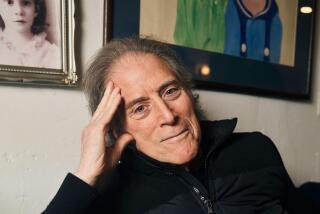Harold Lewis, 102; Lied About His Age as a Boy to Serve in Canadaâs Army in WWI
Harold Lewis, who used a false name and lied about his age to serve with the Overseas Military Forces of Canada as a teenage private during World War I, has died. He was 102.
Lewis, who served with the 8th Field Engineers attached to the British infantry, died of natural causes Sunday at his home in Monterey, Calif.
With his death, the number of known Canadian veterans of the Great War still living shrank to nine, according to Canadian newspapers.
In gratitude for his wartime service, France awarded Lewis the Legion of Honor medal and Canada gave him the McCrae Medallion and the Queenâs Certificate during a joint ceremony at a church in Monterey in 2000.
Born in Bristol, England, in 1900, Lewis moved with his family to Canada as a child, settling on Vancouver Island, British Columbia. He left school in the fifth grade and hunted, trapped and fished in the coastal town of Ucluelet.
In 1916, the 16-year-old Lewis enlisted in the armed forces by taking his stepfatherâs surname of Martin and telling the army recruiting office he was of legal age. Lewis, known in military records as Pvt. Harold Martin, was serving in the front-line trenches at Ypres, Belgium, and at Passchendaele, France, before he turned 17.
As reported in the Ottawa Citizen this week, he later recalled stories of life in the trenches, where rats would chew through sleeping soldiersâ boots -- and into their flesh if they didnât wake up.
He remembered seeing poison gas heading toward the trenches and officers ordering the soldiers to urinate on their long underwear and press it against their faces. Those who didnât, he said, died.
And he remembered shooting enemy soldiers and carrying his two closest friends to medical tents, only to learn that they were already dead.
But he also recalled lighter moments, according to retired Air Force Lt. Col. Robert W. Johnson, California adjutant for the Veterans of World War I of the USA, who knew Lewis.
While escorting a team of U.S. military observers, Lewis substituted water for their rum rations and shared his bounty with buddies in his unit. And, during a brief Christmas truce in 1916, he shared dinner and a flask of whisky with a group of German soldiers.
Speaking of that event in a recent interview with the Globe and Mail of Toronto, Lewisâ daughter, Gloria Elber, said, âThey actually shared food in the trenches, and the next day they were shooting each other again. They were just young kids like him, fighting for their country.â
The war ended for Lewis after he was wounded in a leg by shrapnel at Ypres. While he was hospitalized, the army discovered he was only 17 and sent him home.
Back in Vancouver, he became an automobile mechanic. In 1924, he wed his wife Edna, to whom he was married for 74 years until her death. In 1929, they moved to Monterey, where Lewis found work as a master mechanic and once owned his own garage.
He later worked as a heavy equipment mechanic on large construction projects such as Ft. Ord near Monterey; Ft. Huachuca, Ariz.; a nuclear power plant in Washington state; and the Monterey Peninsula Airport.
He served two terms on the Monterey City Council and 12 years on the cityâs Planning Commission, and he was a founding member of the Masonic Order in Carmel and the Royal Canadian Legion post in Monterey.
In an Ottawa Citizen story last month on Canadaâs remaining veterans of World War I -- in which 650,000 Canadians enlisted and 69,000 were killed -- a brief profile of Lewis noted that at 102, he lived alone and cooked his own meals and that he was still getting out twice a week for lunch, âwashing it down with room-temperature beer.â Until two years ago, he had 20/20 vision but had taken to using reading glasses to read his daily newspaper.
And each day, Lewis, who had become a U.S. citizen long ago, raised his American flag.
In addition to his daughter, he is survived by five other children, Ken, Gordon, Norman, Kathi De Maria and Dick; 12 grandchildren; and 10 great-grandchildren.
A private service is planned. Memorial gifts may be sent in Lewisâ name to a local hospice.
More to Read
Sign up for Essential California
The most important California stories and recommendations in your inbox every morning.
You may occasionally receive promotional content from the Los Angeles Times.










